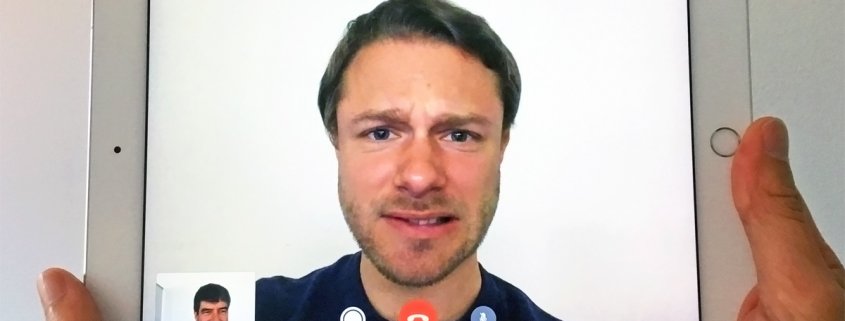Speaker/Microphone Clashing in the iPad Pro
Whenever engineering meets art, usability and design are confronted, that is, if one aspect does great, the other one is at risk of going the other way. Harmony between both is key to persuade people to their next spontaneous buy, whether it is an electric car, a pair of jeans, a custom guitar or a digital gadget. In this last category, Apple (Inc) takes by own merit the banner for elegant design and exceptional user experience. Such an exercise of creativity and innovation is so exhaustive that, quoting Steve Jobs, “you have to say ‘No’ to 1000 things.” Let us call that innovation methodology into question in one of the very recent Apple creations, the iPad Pro.
In general we do like the iPad Pro (writing this very blog post with one of them). What we do not quite like so much is its sound system (what are you talking about?! the iPad Pro is the first ever tablet with a four-speaker audio system delivering unprecedented surround stereo sound!!). Let me explain. Of course we enjoy casual music listening on the iPad Pro, but its four-speaker audio system poses serious challenges for video/audio conferencing services such as FaceTime, Skype or Hangouts because the microphone is placed on a corner and a loudspeaker has hardly any other place to go than a corner (remember the iPad Pro has four speakers, i. e. corners). The result? Mainly Skype and Hangouts users have been complaining about unbearable echo when their conferencing peers are using an iPad Pro.
The workaround adopted by Apple to reduce the acoustic echo during videoconferencing has been namely to turn off the “loud” speaker near the microphone (the Voice Processing I/O system audio unit automatically takes care of this). But has this patch fixed the pain? In some sense it has (as the echo is passively reduced), but it has also led to a bizarre situation: because the iPad was born to be held with hands, the lower two speakers may get unintentionally blocked by the user, while Apple is deliberately shutting off the “conflicting” upper speaker. We do not need to go into detail on the complications that this “hands-on” scenario poses for any echo reduction system, but we cannot but wonder why the 1000 abandoned ideas were considered “not good enough”.
As it is always easier to criticize than to create, we decided to compare our acoustic echo reduction technology on the iPad Pro against Apple’s in a challenging scenario of permanent double talk. We are in clear disadvantage as we have to deal with four loud speakers altogether (because the Remote I/O audio unit needs to be used instead of the VPIO for custom processing). We also included Skype and Google Hangouts to the David-versus-Goliath fight. The average distortion infringed by each system to the main microphone signal was assessed for a normal loudness level (80% of maximum volume) and for maximum system volume (100%). The evaluation numbers are presented in the table below (where lower is better).
|
Distortion (dB) |
||
|
80% |
100% |
|
| FaceTime |
5 |
11 |
| Skype |
7 |
12 |
| Hangouts |
9 |
15 |
| proactivaudio |
3* |
7* |
* all four iPad Pro speakers active
Three quick conclusions can be drawn from the numbers above: 1) FaceTime, Skype and Hangouts distort the main signal captured by the microphone, the more the louder the speaker volume; 2) despite both Skype and Hangouts appear to be using the system VPIO (as the conflicting loudspeaker does not emit any sound with their systems), they do not match Apple’s performance; and … 3) our echo reduction technology outperforms all giants, even with the fourth “loud” speaker active! We invite the reader to assess the results of the evaluation in the video below. We would have liked to run our VoIP prototype with one speaker less to make up our numbers even better. Still we believe that the iPad Pro microphone position deserves a second thought. Personally we cannot blame the speaker for playing its role at one of the corners, but it is the microphone which we assume has plenty of space to go.





Leave a Reply
Want to join the discussion?Feel free to contribute!